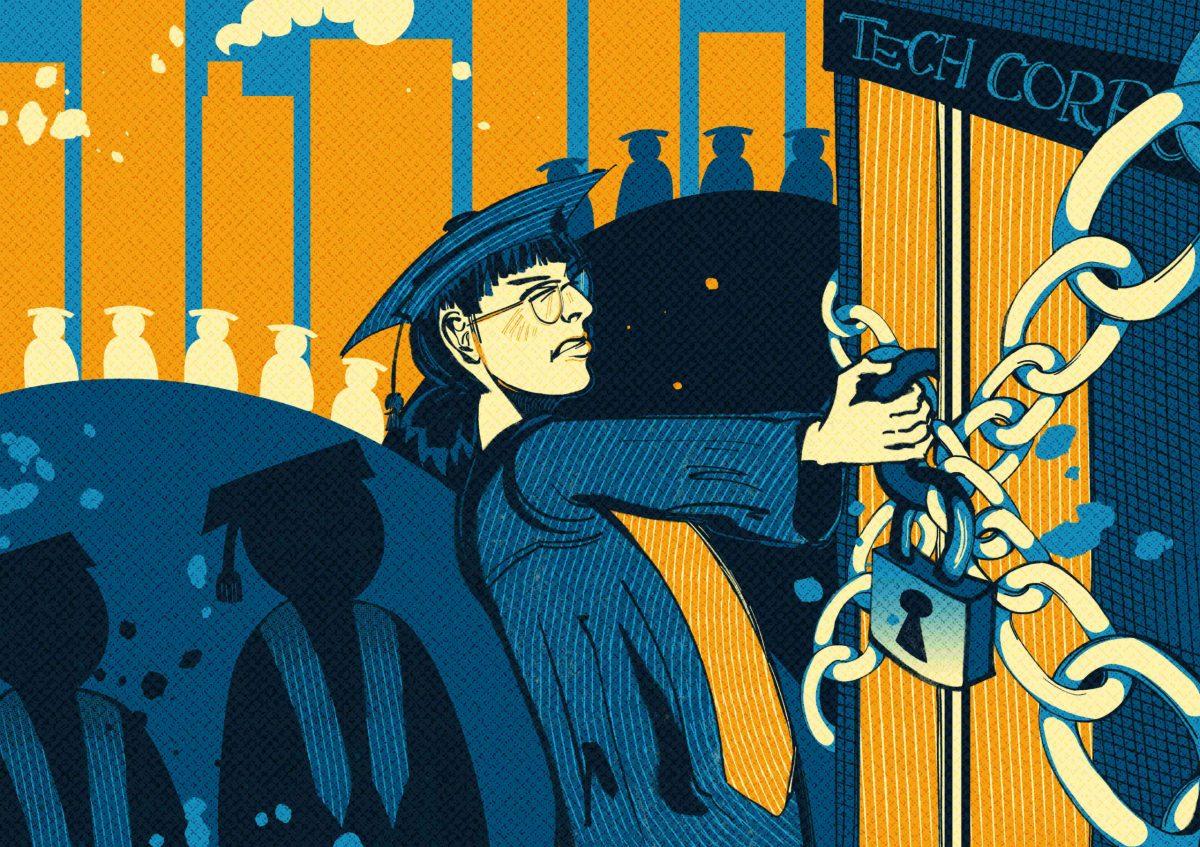The tech industry has experienced rapid growth in recent years, particularly in the fields of computer science, data science and software engineering. And with all the buzz about UTD’s computer science program, The Mercury took a look at whether the job field is really as viable as students often assume it to be.
According to the UU.S Bureau of Labor Statistics, employment in computer and information technology occupations is projected to grow much faster than the average from 2022 to 2032, with 377,500 new job openings projected per year. Because of the tremendous demand, students are entering these fields in droves, driven by the expectation of high starting salaries — CS graduates can expect around $77,635 for an entry-level position. A recent UTD graduate in computer science, Ben Nguyen, made around $80,000 at his first job.
“I know a friend of mine who moved from Texas … they were able to take a six-figure position right out of college,” Nguyen said.
However, sometimes projected job growth outstrips reality; according to Forbes, in 2023, 174 tech companies laid off over 56,000 employees. Facebook’s Mark Zuckerberg said Meta has announced that they will be laying off another 10,000 people, according to Study International. Nguyen himself was laid off in fall 2023.
“It was a pretty sudden layoff. They called me up one day and they were like, hey, thanks for your help. You’re being let go … I was devastated,” Nguyen said.
John Cole is a computer science professor who has been teaching for 17 years and has over 40 years of experience in the industry. To be prepared for the industry, Cole said students should consider taking a finance or digital art minor and improving their written skills. However, Cole said students should avoid specializing in a specific skill and instead keep their abilities broad, as the market is constantly evolving.
“The tech industry is very much up and down,” Cole said. “You can’t always predict or expect what’s going to happen in the future. And so, you just need to focus on the present.”
Jey Veerasamy, a senior lecturer and director for computer science education and outreach, also said that the tech industry has ups and downs like any other field.
“It’s more a problem with the way companies are hiring,” Veerasamy said. “So they get into this hiring race. And they think that they need a lot of people. Then at some point they realize that they really don’t need that much.”
Computer science junior Joshua Cruz has interned for companies like Microsoft and is set to participate in a hackathon at Princeton. Cruz said companies often want prospective students to pass technical assessments during an interview. To prepare for these assessments, Cruz said students can use Leetcode to practice the most frequent questions used by hiring managers at Microsoft, Google and Apple. According to Cruz, the UTD computer science curriculum is good preparation, but things change when you get into the real world.
“One of the things I’ve learned is the industry is very different than what we’re learning in our classes … You can look anything and everything you want up on Google and use whatever resources you have to solve the problem,” Cruz said. “I think that’s very different than college.”





